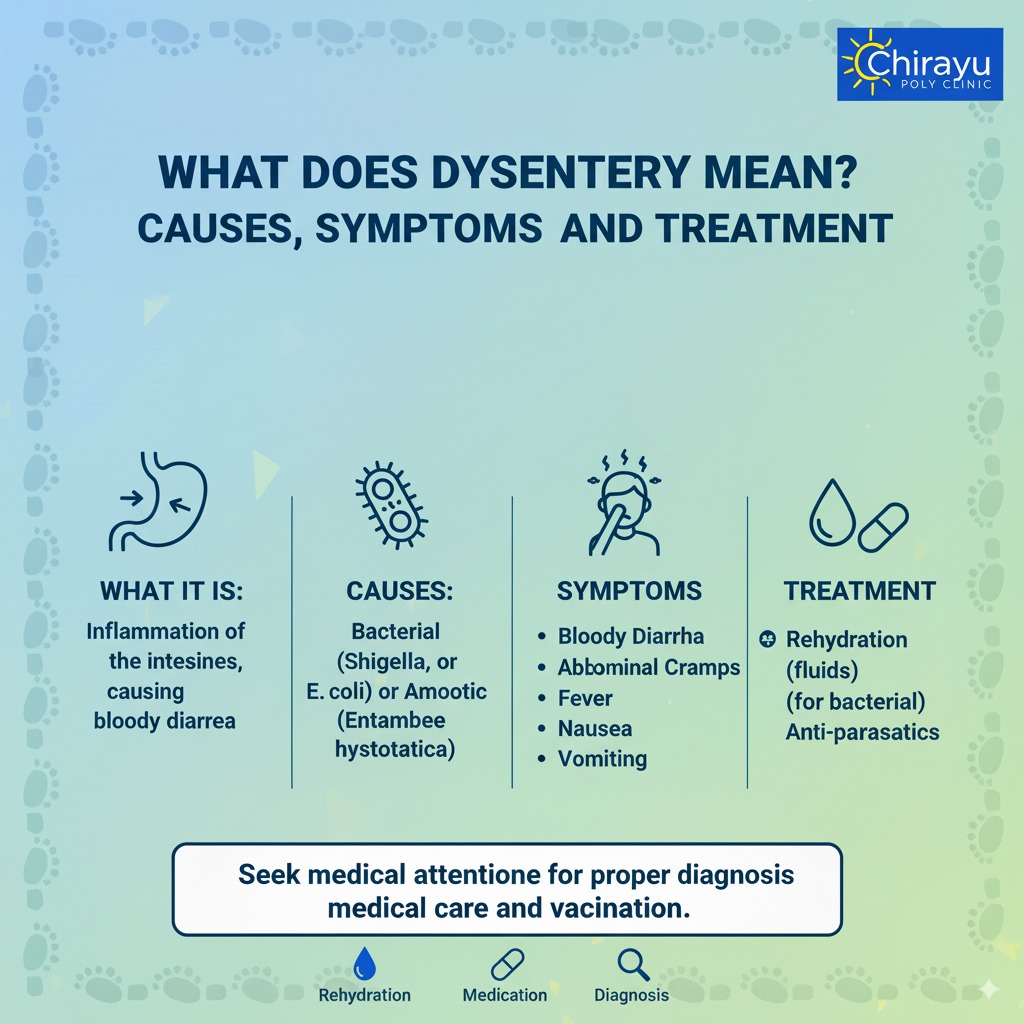What Does Dysentery Mean? Causes, Symptoms, & Treatment

Dysentery is a serious intestinal infection that primarily affects the digestive system. Many people ask, what does dysentery mean? Understanding the diarrhea it causes, risk of dehydration, and available infectious disease treatment is crucial for proper care and recovery.
What Does Dysentery Mean?
Dysentery is a type of severe diarrhea caused by bacteria, viruses, or parasites. It often involves:
-
Frequent, watery stools
-
Abdominal pain and cramping
-
Presence of blood or mucus in stool
Knowing what dysentery means helps in identifying the condition early and taking the right steps for treatment.
Causes of Dysentery
Common causes include:
-
Bacterial infection (Shigella, E. coli)
-
Parasitic infection (Entamoeba histolytica)
-
Contaminated food or water
-
Poor hygiene and sanitation
Understanding the cause is essential for appropriate infectious disease treatment.
Recognizing Dysentery Symptoms
Key diarrhea-related symptoms of dysentery include:
-
Frequent watery or bloody stools
-
Abdominal cramps
-
Fever
-
Nausea and vomiting
-
Signs of dehydration, such as dry mouth and dizziness
Early recognition of dysentery symptoms is vital to prevent severe dehydration and complications.
Treatment and Prevention
Effective management involves:
-
Rehydration – Oral rehydration salts (ORS) to prevent dehydration
-
Medications – Antibiotics or antiparasitic treatments as prescribed by a doctor
-
Hygiene practices – Washing hands, consuming clean water, and safe food practices
-
Consulting a gastroenterologist – Proper gastroenterology consultation ensures accurate diagnosis and treatment
Prompt treatment helps in quick recovery and prevents the spread of infection.
Consult a Doctor for Expert Guidance
If you or someone you know shows signs of dysentery, consult a healthcare professional immediately. Our specialists at Chirayu Polyclinic provide proper infectious disease treatment and care. Learn more about our doctors here.
Conclusion
Understanding what does dysentery mean, recognizing diarrhea and dehydration symptoms, and seeking timely gastroenterology or infectious disease treatment is crucial for recovery. Early action ensures safety and prevents serious complications.

